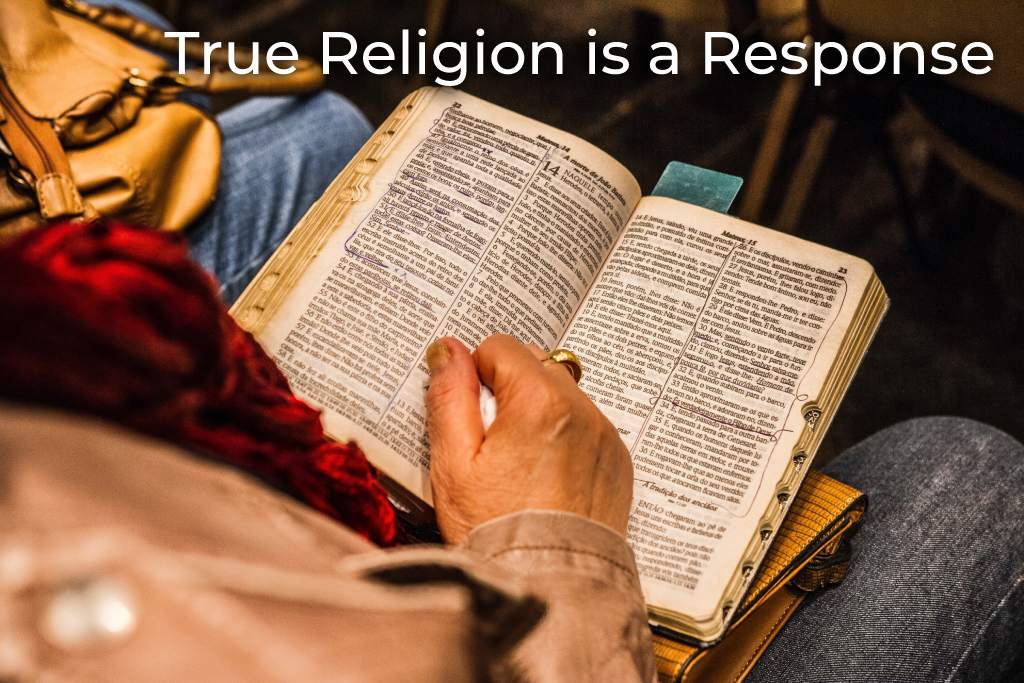
“I beseech you therefore, brethren, by the mercies of God, that ye present your bodies a living sacrifice, holy, acceptable unto God, which is your reasonable service.”
– Romans 12:1 [KJV]
In this age of modernity, a time frame after traditional values are discarded for pluralism, the notion of religion is commonly rejected. As modernists understand it, religion is a system of regulation that marks one as acceptable to a god or religious organization, such as Christianity. They denote that religion is a danger to society because of the perception of rank or status and the consequent oppression that it tends to produce. However, most of their vitriol targets the Church, and no other organization or social club gets the kind of venom that the Christian church receives. They seem to forget gangs, cartels, and biker clubs also have designated ranks; nevertheless, they focus on Christianity to the degree that some so-called Christians have “deconstructed” from its “harmful religious practices,” and many have left the Church altogether.
Dear child of God, please do not be misled; the Christian religion is a necessary response to the Christian experience. By Christian experience, I mean the regeneration of the soul by the Holy Spirit in response to faith in Jesus Christ as Savior and Lord; this experience categorically transfers us from the kingdom of darkness into the kingdom of light. We are spiritually repositioned to a place of peace with God, adopted into His family, and made heirs and joint heirs with Jesus Christ. With this experience in mind, the believer becomes aware of his escape from the clutches of hell and damnation from the wrath of God. Thus aware, he becomes, or should become, appreciative of the love of God, who was willing to save him rather than condemn him. The reasonable obligation outpouring from our hearts comes from the voluntary pouring of God’s love upon us. Indeed we love God because He first loved us and demonstrated it by sending His Son as an atonement for our sins. This experience motivates and compels us to surrender our lives to the Almighty.
Thus I employ the Psalmist to supply speech for the zeal of our devotions, “What shall I render unto the Lord for all of His benefits towards me?” Our love for God doesn’t only pour from our hearts but also from our actions. A common request is to ‘give God your heart,’ but He also wants your whole body, soul, and mind. This is why the Apostle intreats us to present our bodies to the Lord. The Christian faith isn’t a mental attestation but rather a presentation of the total self to God in response to our indebtedness to the glorious deliverance of our soul.
You see, then, it’s a response. The duties performed, the worship rendered, and the sacrifice of time and money isn’t to earn or merit salvation. We serve or ought to perform good works because we’re saved, not to become saved. We act justly, love faithfulness, and walk humbly before God because this is what He requires as a token of our gratitude. We declare our affection for the Almighty; however, our religion towards Him is also proof. The religious duties demonstrate a body submitted to His will, which displays our hearts’ gratefulness. This echoes throughout the tenor of the Holy Writ; men did good works for God in response to the goodness they experienced from God. Deliverance often precedes duty, but duty always comes after being delivered, and it would be unreasonable otherwise.
Therefore, the Preacher appeals in Ecclesiastes 12:13 [KJV], “Let us hear the conclusion of the whole matter: Fear God, and keep his commandments: for this is the whole duty of man.”

0 Comments